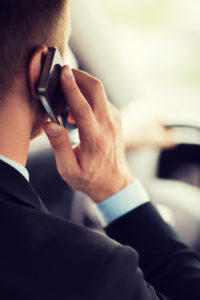
Handling Cellular Distractions

A business that deals with over-the-road transportation is highly concerned with substantially minimizing accidents and avoiding cellular distractions. Vehicle accidents, besides interrupting work and creating a loss of business property, have much wider consequences. Accidents also cause severe damage to public and private property and, more significantly, also create injuries and even fatalities. Therefore, persons who drive business vehicles must do so safely.
Issues that adversely affect a person’s attention to proper driving are broadly categorized as distracted driving. Distracted driving could include any number of sources, including:
- conversations with a passenger
- eating, drinking or smoking while driving
- Focusing on activities or sights near a roadway (such as an accident, traffic stop, attractive pedestrians, tourist attractions, etc.)
- attempting pre-work activities such as shaving, combing hair, applying make-up, etc
- reading directions or maps
In other words, any activity that takes the focus off the roadway and the steering wheel qualifies as driving distractions. Among the most dangerous is the use of cell phones, particularly handheld phones. The act of pushing buttons and then focusing attention on a call substantially increases the chance of an accident. The situation is worsened when accidents involve large commercial vehicles.
Commercial motor vehicles essentially are those that exceed 26,000 lbs (vehicle PLUS cargo weight), buses capable of transporting at least 16 persons (11 persons if passengers are younger than 21 and commuting to school), or are used to transport materials hazardous enough to qualify for use of warning signage. Persons who drive such vehicles, due to the very high stakes related to accidents, will soon be prohibited from hand-held cell phone use during vehicle operation. Per the USDOT’s rule, “use” includes the act of reaching for a phone with intent to handle a call.
Both individual drivers and their employers are subject to significant fines if caught in violation of the rule. As proposed, individual drivers may be fined up to $2,750. Employers who permit driver cell phone use are subject to a per-incident fine of up to $11,000. At the option of a given state, individual drivers guilty of two or more violations may be, further, subject to suspension of his or her Commercial Drivers License.
